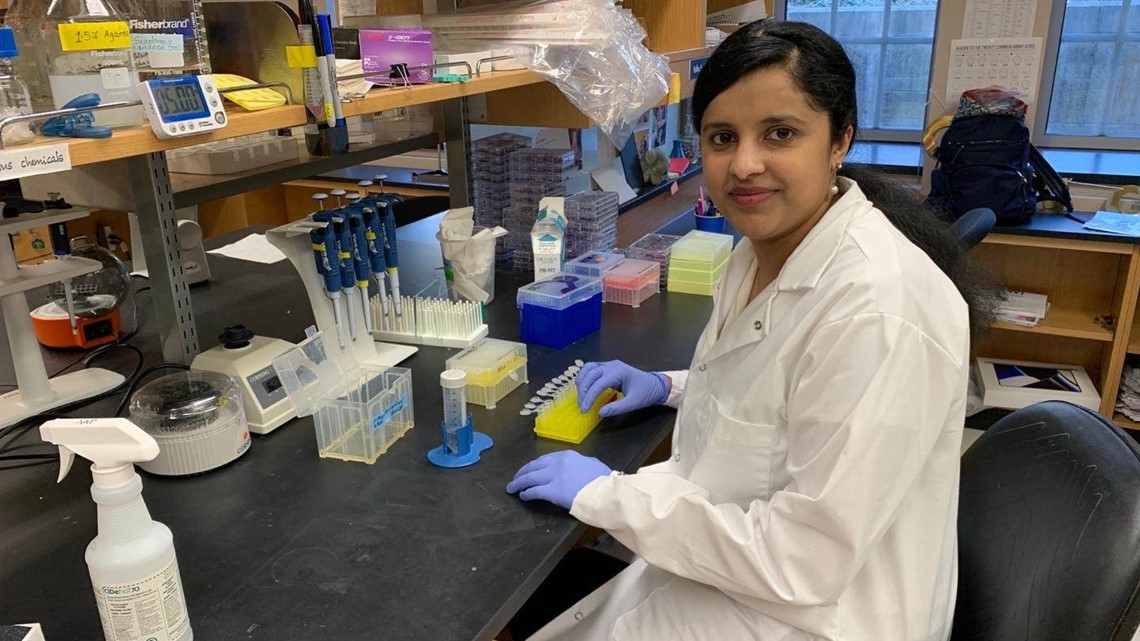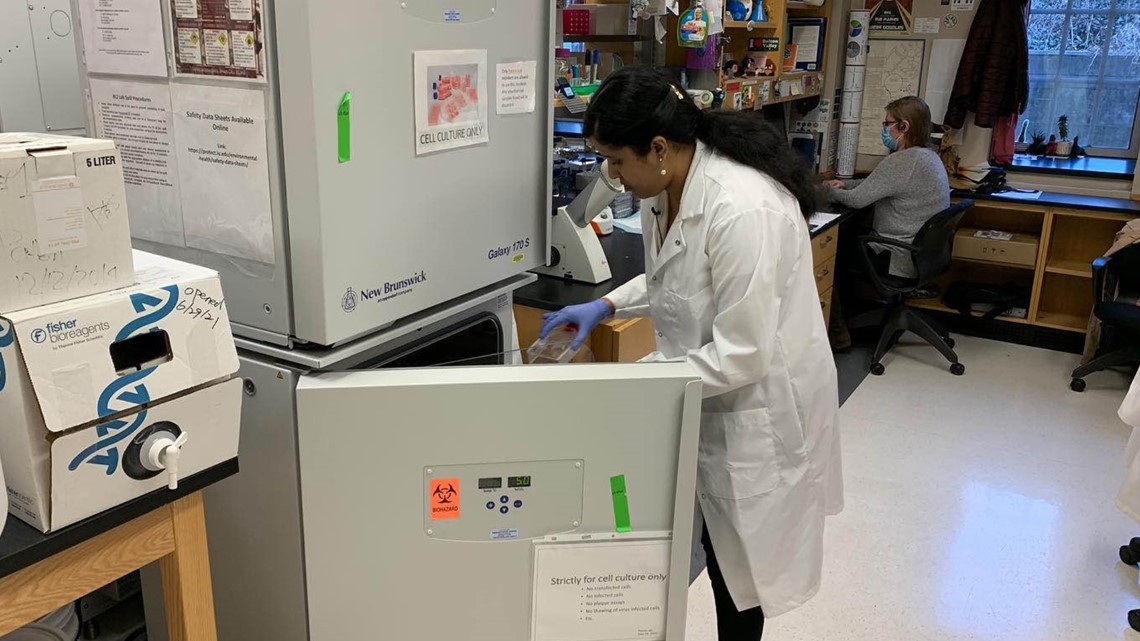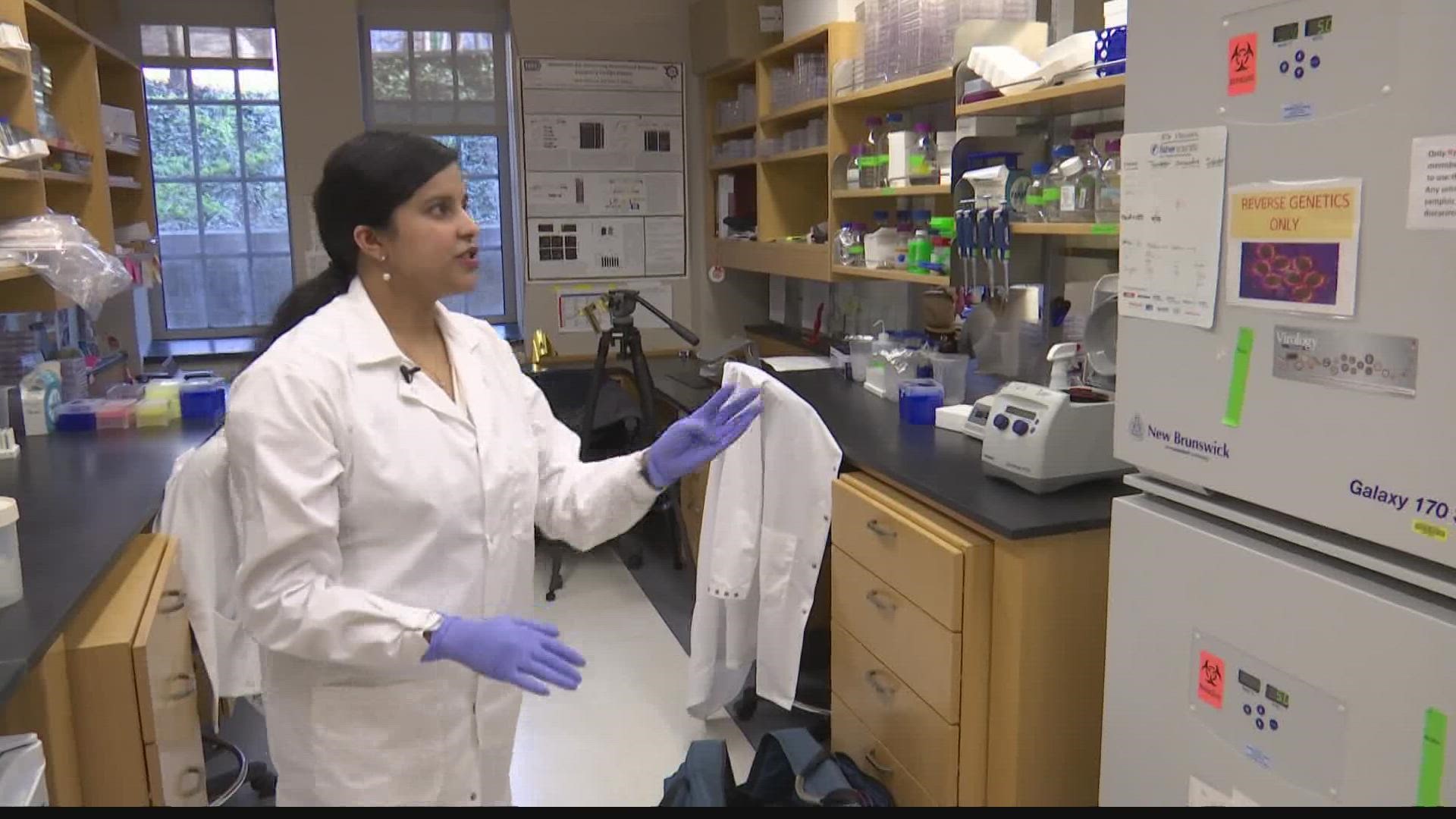BLOOMINGTON, Ind. — An Indiana University researcher who is also a new mother is developing a combination vaccine to knock out two nasty viruses.
Rotavirus and norovirus can lead to deadly dehydration, especially for babies in developing countries.
In an IU Bloomington basement laboratory at Simon Hall, postdoctoral virology researcher Asha Philip is using reverse genetics to develop the combination oral vaccine for infants.
"When this recombinant rotavirus grows, it will be expressing the norovirus protein as an additional protein,” said Philip. “So this vaccine will be able to give protection against rotavirus, as well as the Norovirus at the same time."
Rotavirus oral vaccines for infants have been available for about 15 years. Philip’s research is to change the rotavirus vaccine to also protect against norovirus.
"Norovirus is like notorious for its infectivity, and unfortunately we don't have a vaccine against norovirus, even though some clinical and preclinical studies are going on for last 20 to 30 years," said Philip.


Norovirus infections can cause severe vomiting and diarrhea, killing 100,000 children around the world each year.
"In other developing countries, the medical system is not that great,” said Philip. “So even if the child is getting an infection and taken to the hospital, we could not say that every child could be saved, so vaccine is the greatest idea for saving the life of the children in developing countries."
Philip began work on this project as a graduate student in 2016 under biology professor John Patton. She's hopeful that a combination rotavirus/norovirus vaccine for infants can be in use by 2025.


“When I heard the term vaccine and he has a project that could be developing a vaccine, then I got excited that, 'Oh yeah, this is my project,'” said Philip.
Now Philip is a new mom with a baby boy, seven-month old Jace, hoping her research will help save babies in the future.
IU received a $1.2 million grant from venture capital firm GIVAX Inc. to further develop the combination vaccine.
Philip says an oral vaccine provides easy distribution and vaccination around the world because a medical professional is not needed to give a shot.
What other people are reading:
- Indiana State Fair paying homage to state's automotive legacy with 2022 theme
- Libby German's grandfather reacts to police interview transcript and investigators' call for more information
- Good Samaritan gives fleeing suspect a ride — right back to Indiana State Police
- 'There's nothing you can do to make it better': Police recount waiting with families who lost loved ones in FedEx shooting

